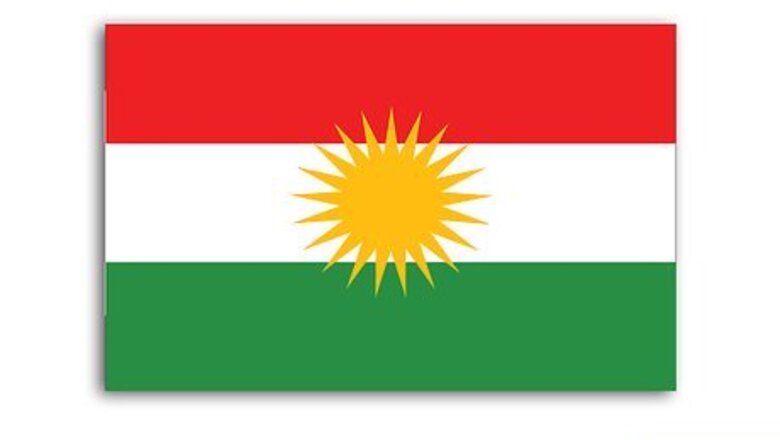
views
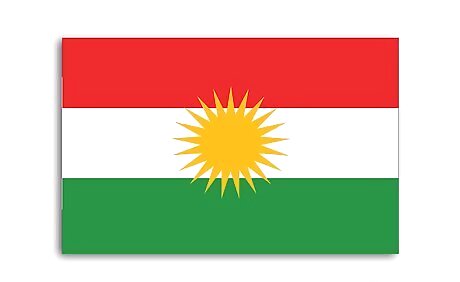
There are very few online resources for learning Sorani. Here are a few expressions, words and phrases to get you started:
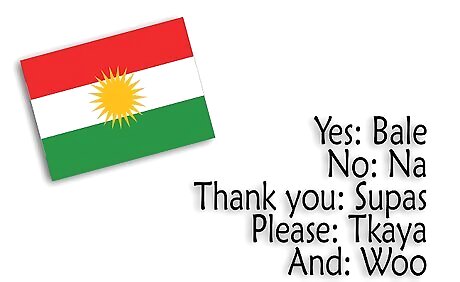
Learn the key words: Yes: Bale No: Na Thank you: Supas Please: Tkaya And: Woo
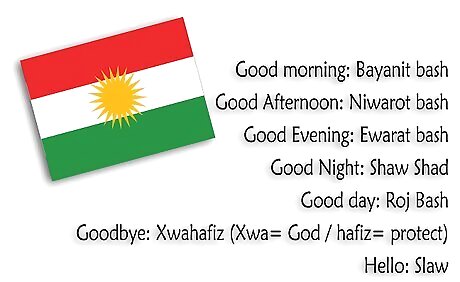
Learn some phrases. Good morning: Bayanit bash Good Afternoon: Niwarot bash Good Evening: Ewarat bash Good Night: Shaw Shad Good day: Roj Bash Goodbye: Xwahafiz (Xwa= God / hafiz= protect) Hello: Slaw
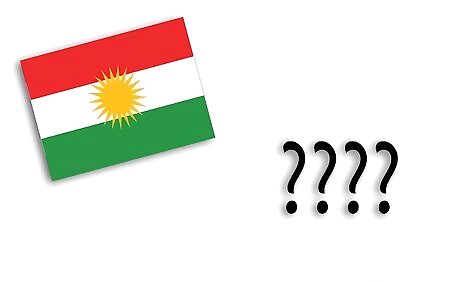
Learn some common questions and answers. How are you?: Choni? to choni? I am okay: Bashm(Turkish) chaakem (Iraq) I am very okay: Zor bashm I am not okay: Bash nim I am ill: Naxoshm Where are you? Lakwey? Where do you live? Lakwey azhit? I live in England: La Englestan azhim How old are you?: Tamant chanda? What is your name?: Nawt chya? Where are you going?: Bo kwe aroy? I go to work: Achm bo îsh When are you coming back?: Kay yatawa? I come back evening: Eawara demawa What is your job?: îsht chya? Did you arrive: Gayshti? I am going: Arom What?: Chi? How many?: Chand? How many brothers have you got?: Chand brat haya? I have one brother: Yak bram haya Have you got children?: Mnall't haya? How are you doing?: Bashee? Fine thanks, and you?: Bash'm supas ey to? Do you know what I mean?: Te agate?
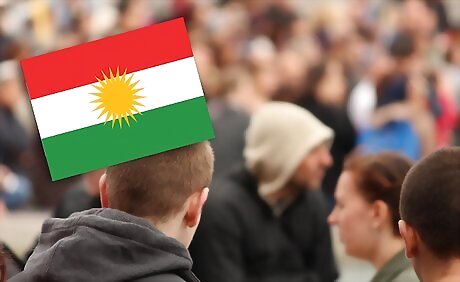
Learn what to call people. You: to (pronounced 'tå') I:m: (A little bit complicated) My: Add "m" to noun ending ("My nose" becomes "lut[m]") Mum: Dayk Dad: Bawk Sister: Khoshk Brother: Bra Paternal uncle: Mam Maternal uncle: Khal Girl: Kch A girl: Kchek Boy: Kur (pronounced 'kooorr') A boy: Kurek Teacher: Mamosta
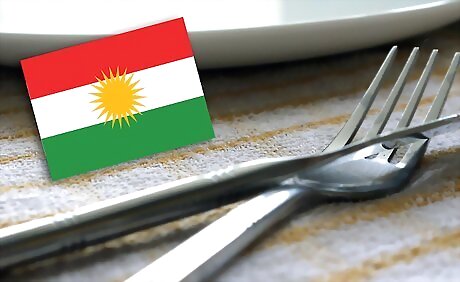
Learn the names of some foods. I eat: Khwarden axom Rice: Brnj Tea: Cha Coffee: Qawa Water: Aaw Soup: Shorba Okra: Bamya Yogurt: Mast
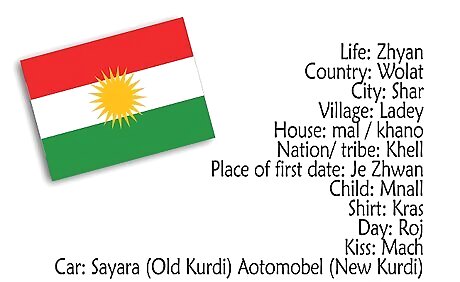
Learn a few other key words. Car: Sayara (Old Kurdi) Aotomobel (New Kurdi) Life: Zhyan Country: Walat City: Shar Village: Ladey House: mal / khano Nation/ tribe: Khell Place of first date: Shweny khwazbyeny yekem Child: Mnall Shirt: Kras Day: Roj Kiss: Mach
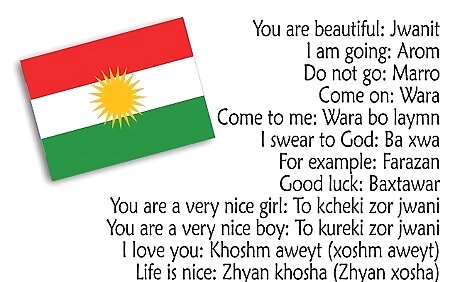
Learn some expressions You are beautiful: To Jwanit I am going: Min Arom Do not go: Marro Come on: De wera Come to me: Wara bo laymn I swear to God: Ba xwa For example: Bo nemoona Good luck: Baxtawar You are a very nice girl: To kcheki zor jwani You are a very nice boy: To kureki zor jwani I love you: Khoshm aweyt (xoshm aweyt) Life is nice: Zhyan khosha (Zhyan xosha)
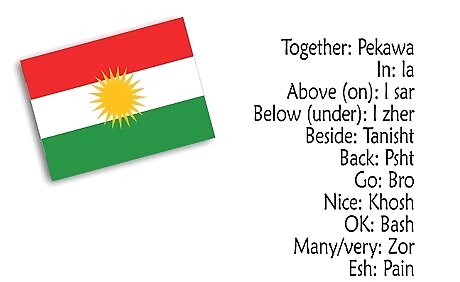
Learn some descriptive words. Together: Pekawa In: la naw Above (on): sar Below (under): zher Beside: Tanisht Back: Psht Go: Bero Nice: Khosh OK: Bash Many/very: Zor Pain: zhan
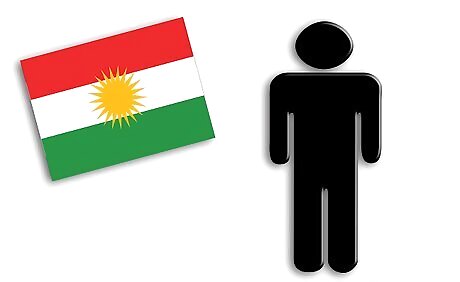
Learn a few major body parts. Head: Sar Neck: Mel Eye/ eyes: Chaw Nose: Loot Mouth: Dam Eyebrow: Brä Ear/ ears: Gwe Hair: Qzh Cheek: Roomat Hand: Dast Shoulder: Shan Chest: Sng Breast: Mamk Abdomen: Sk Umbilicus: Nawk Foot/ feet/ lower limb: qach Fingers: Panja Back: Psht Knee: Azhnoo
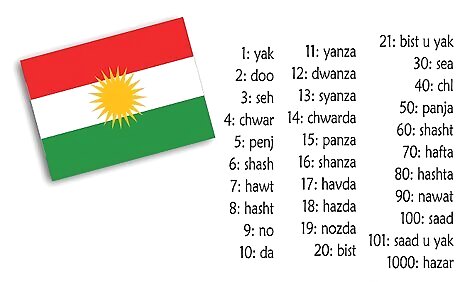
Learn to count. 1: yiek 2: doo 3: ce 4: chwar 5: penj 6: shash 7: hawt 8: hasht 9: noh 10: de 11: yanza 12: dwanza 13: syanza 14: chwarda 15: panza 16: shanza 17: havda 18: hazhda 19: nozda 20: bist 21: bist u yak 30: ci 40: chl 50: penja 60: shast 70: hafta 80: hashta 90: nawa 100: saa 101: saa u yak 1000: hazar














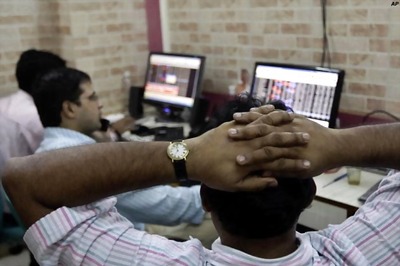

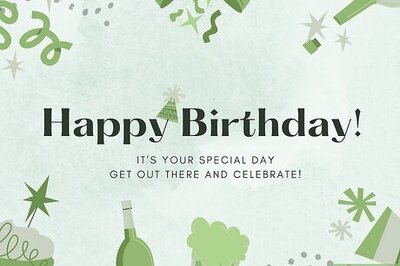

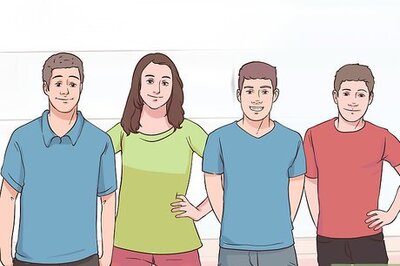
Comments
0 comment